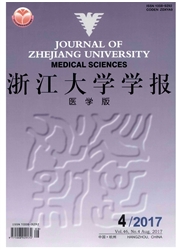

 中文摘要:
中文摘要:
脑肠肽Ghrelin(又名胃饥饿素)是生长激素促分泌激素受体的内源性配体,在外周主要由胃底细胞产生,通过刺激食欲而调节能量代谢。在脑内,Ghrelin主要在垂体和下丘脑弓状核内产生,对下丘脑内摄食、生殖、应激反应相关神经肽的合成和分泌起重要调节作用。近年来,较多的研究聚焦于Ghrelin在调节脑内学习、记忆、情绪等高级功能方面的作用,揭示了Ghrelin抗神经元凋亡,提高认知功能,调节神经内分泌轴,例如下丘脑-垂体-肾上腺轴、下丘脑-垂体-性腺轴活性而参与应激反应等显著效应。Ghrelin还极有可能在一些神经精神疾病的发病机制中扮演重要角色,因此有广阔的研究前景。文中将就相关研究进展作一综述,旨在推动对于Ghrelin在脑内的效应的研究。
 英文摘要:
英文摘要:
The brain-gut peptide ghrelin,a endogenous ligand for the growth hormone secretagogue hormone receptor,is mainly produced by gastric cells in the periphery,regulating energy metabolism via stimulating the appetite.Inside the brain,ghrelin is mainly expressed in the pituitary and in the hypothalamic arcuate nucleus,regulating the synthesis and secretion of neuropeptides that are correlated with feeding behavior,reproduction,and stress responses.Recently,more and more researches focused on the regulating roles of ghrelin on learning and memory,and mood regulation have indicated that ghrelin may inhibit neuronal apoptosis,improve cognitive function,and regulate the activities of neuroendocrine systems such as the hypothalamo-pituitary-adrenal axis and the hypothalamo-pituitary-gonadal axis thus get involved in the pathogenesis of neuropsychiatric diseases.The aim of this review is to summarize the main findings in this field,with the purpose of promoting further studies on the role of ghrelin in the brain.
 同期刊论文项目
同期刊论文项目
 同项目期刊论文
同项目期刊论文
 Gene expression of GABA and glutamate pathway markers in the prefrontal cortex of non-suicidal elder
Gene expression of GABA and glutamate pathway markers in the prefrontal cortex of non-suicidal elder 期刊信息
期刊信息
